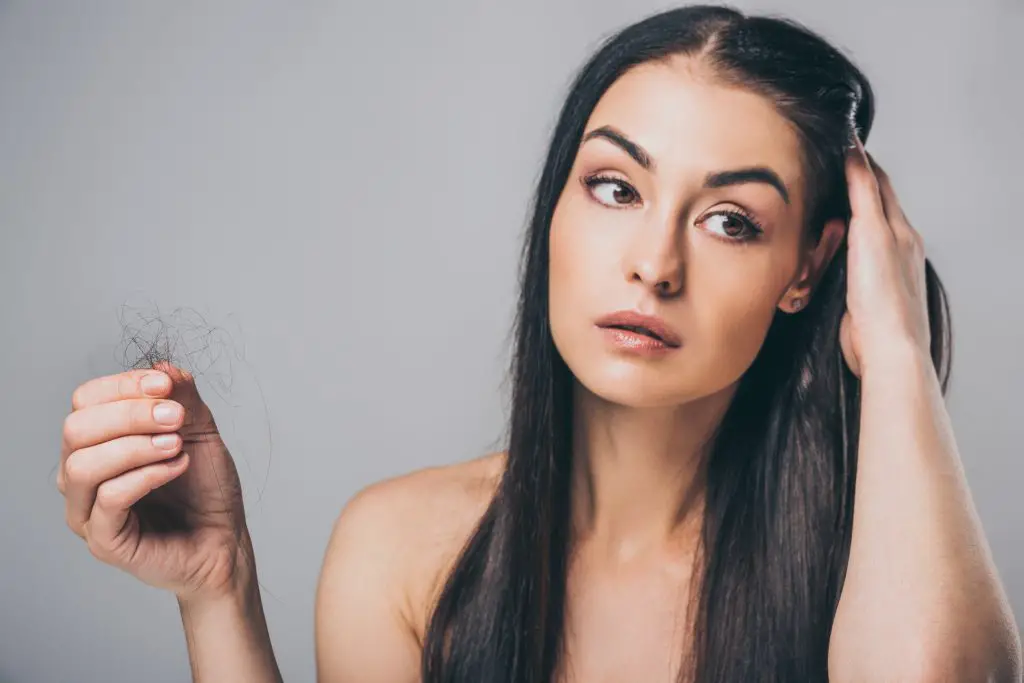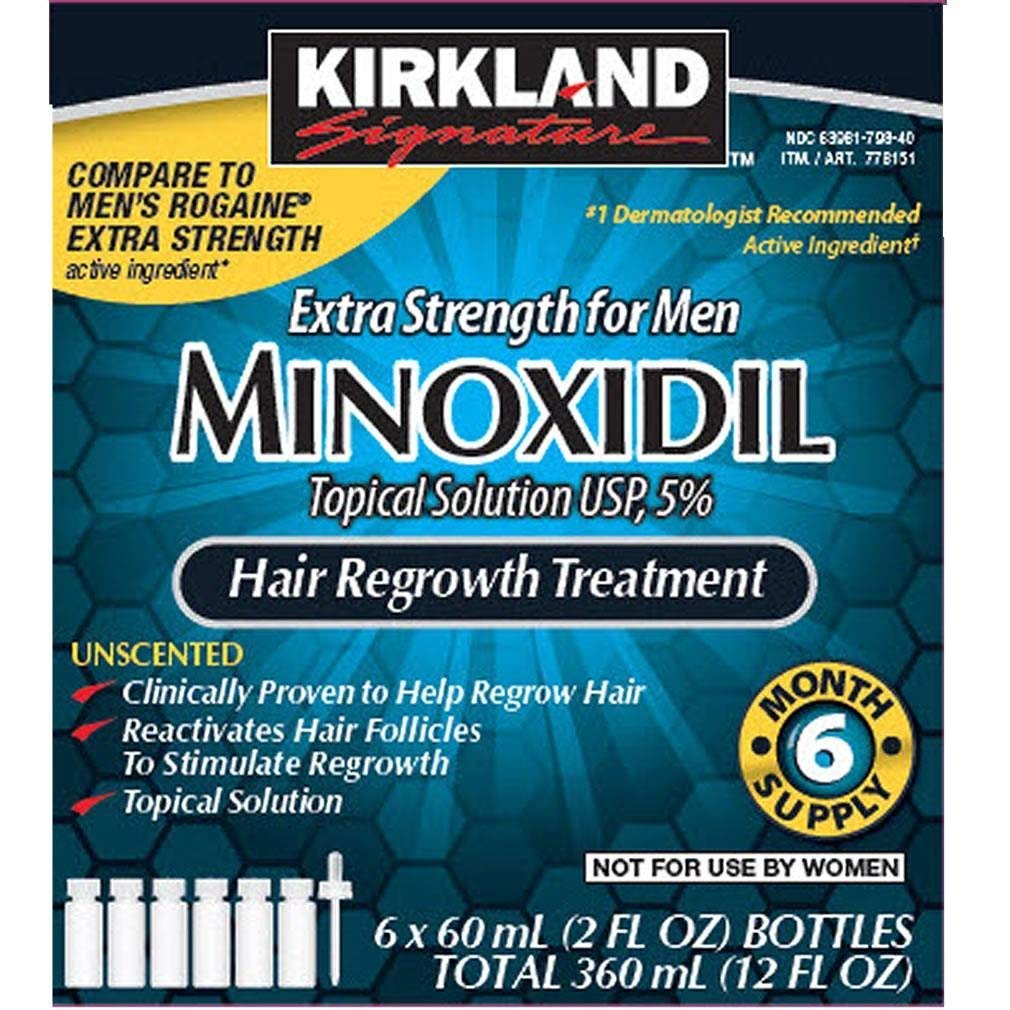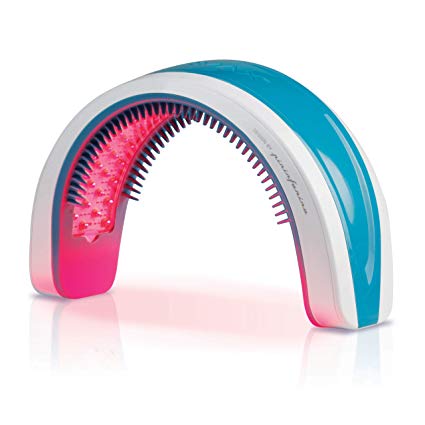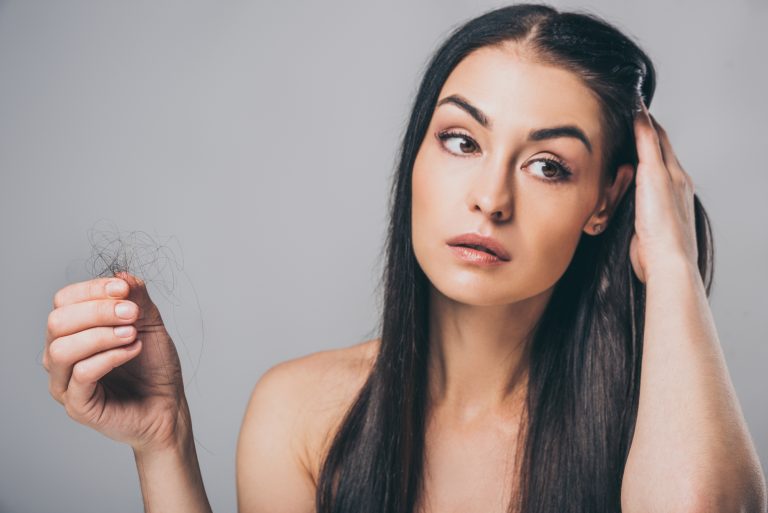
Page Contents
Hair loss is not something that anyone is excited about. Women, especially hate losing their hair for any reason. We know that men can experience hormonally driven hair loss but what about women? Do they experience hormonal hair loss too?
Can hormones cause hair loss in women? The simple answer is yes, hormones can cause hair loss in women. There are different reasons, or triggers, for the hormonal loss but it is caused by the same hormone in both men and women.
Knowing that women can experience hormonal hair loss as well as men isn’t all that you need to know when it comes to hormonal hair loss. It is also important to know how to recognize hormonal hair loss so you don’t confuse the cause of your loss as well as what hormonal changes may bring on this loss. We are also going to talk about how to treat the loss and whether or not you can regrow hormonal loss.
What Does Hormonal Hair Loss Look Like?
The first thing to think about if you are concerned you might be suffering from a hormonal loss is what the loss might look like. Different types of loss present themselves differently and can give clues as to what the trigger of the loss could be. So what does hormonal hair loss look like in women?
It is important to realize that hormonal hair loss looks very different in women than it does in men. Men will typically get a horseshoe-shaped loss or a bald spot on the back of the head. Women do not get this pattern of loss.
When women experience hormonal hair loss it is more of an overall thinning. The hair all over the scalp becomes thinner due to the hormonal change or imbalance. If you are noticing that your hair is becoming increasingly thin and can’t seem to stop it, you may actually be struggling with a hormone-driven loss.
Hormonal Changes in Women
There are several times in life when the hormones of a woman can shift significantly. Some of these instances can actually go back to normal once the event is over. However, there are some that will not go back to normal because it is a permanent natural shift. But there are situations when the hormones should have evened out but stay in a state of imbalance and could cause hair loss or other issues until it is resolved.
Pregnancy
Pregnancy is a natural occurrence in the lives of many women. During this time hormones are rising and falling. Progesterone is at an all-time high and if the baby is a boy there is a mail growth hormone called DHT in your bloodstream. These hormonal changes during this time typically cause your hair to be thicker and healthier because your hair stops shedding.
However, hormones can be somewhat unpredictable causing your hair to thin instead of stay thick and lush. Typically these hormonal imbalances will correct themselves after pregnancy. If they don’t then you may need to see a doctor to help rebalance your hormones.
Postpartum
If your hair does what it typically does when you are pregnant and stays thick then you will likely experience the normal postpartum hair loss. When your hormones are trying to go back to normal after you deliver the baby you hair will start to thin. Since it is likely that your hair has not been shedding at all during pregnancy you will probably be experiencing some major hair loss.
This shouldn’t concern you unless it doesn’t stop. The loss should start three to six months after delivery and stop a month or so later. If it doesn’t stop then you will want to make an appointment with your doctor to have your hormone levels checked to make sure they are going back to normal.
Menopause
Another natural hormone shift that can cause hair loss in women is menopause. Your hormones will not go back to what they were before menopause but will be settling into a new normal, so to speak. While some women get through menopause without any significant hair loss, that is typically not the case.
It is more common for women to have some level of hair thinning during or after menopause. To treat this or reverse it you may need to have some kind of hormone therapy to start regrowing your hair.
What Hormone Causes Hair Loss in Women?

It is a common question when it comes to hair loss in women. What hormone actually causes the loss? Is there only one particular hormone or can different hormones that can cause it?
For men and women, there is one hormone that is lurking behind the hormonal hair loss that they are experiencing. It is a hormone that is present at some level in both women and men.
DHT
DHT or dihydrotestosterone is the hormone that is responsible for hair loss in men and women. This hormone is a byproduct of testosterone in the body. While it is common to think that only men have testosterone, that isn’t actually the case. Testosterone is found in small amounts in the female body.
Testosterone has very specific jobs in the female body but when DHT is overproduced it negatively affects the hair follicles. The way this hormone does that is by actually shrinking your hair follicles. When the follicles are smaller they can not stay in the pore of your scalp. This causes the hair to fall out and become thinner than usual.
This can be corrected with hormone therapy but if the problem goes on for too long then it is likely that the loss will be permanent. The key is to catch the loss early and see a doctor for intervention.
How Do You Treat Hormonal Hair Loss?
Now that we have talked about what hormonal hair loss looks like and what causes it in women it is time to talk about possible treatments for this type of hair loss. There are a few things that can be tried but these methods may not work for everyone. It is important to talk to your doctor before trying any of these treatment methods.
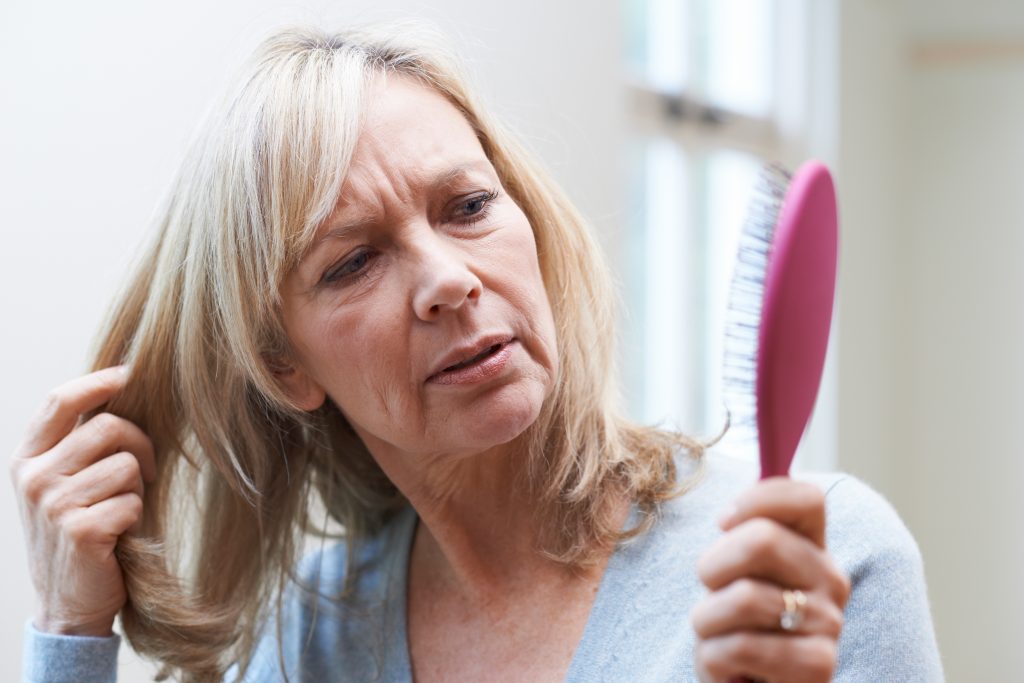
Hormone Replacement
For hormonal loss that comes with hormonal shifts such as menopause hormone replacement therapy may be beneficial. When a woman enters menopause her estrogen and progesterone levels change and not for the better. This shift is what causes hair loss. By replacing the lost hormones the hair loss may be stopped and menopause may be easier all the way around.
Related Reading
Estrogen
This is the main hormone within the female body. There are others but this is the hormone with the highest levels. It has many jobs including managing your brain, pelvic functions, monthly cycles, and hair growth or loss. When this hormone decreases it leaves room for the byproduct of testosterone to come it and shrink your hair follicles.
By replacing this hormone when production decrease you can help your body continue producing strong hair follicles as well as the other functions that are important. Your doctor can help you will the appropriate levels if tests indicate it is needed.
Progesterone
Progesterone is a hormone that actually increases during pregnancy. This is a hormone that contributes to the lush mane pregnant women usually have. But progesterone is important to your monthly cycle as well as your mental well being. This is a hormone that your body can’t do without. Because of this, hormone intervention is crucial if there appears to be a progesterone problem.
Your doctor can test your hormone levels to show you where you are lacking and what needs to be addressed. If your progesterone levels need intervention your doctor can prescribe you a medication to help. The goal is to regulate the hormones and get your hair to grow again.
Birth Control Pills
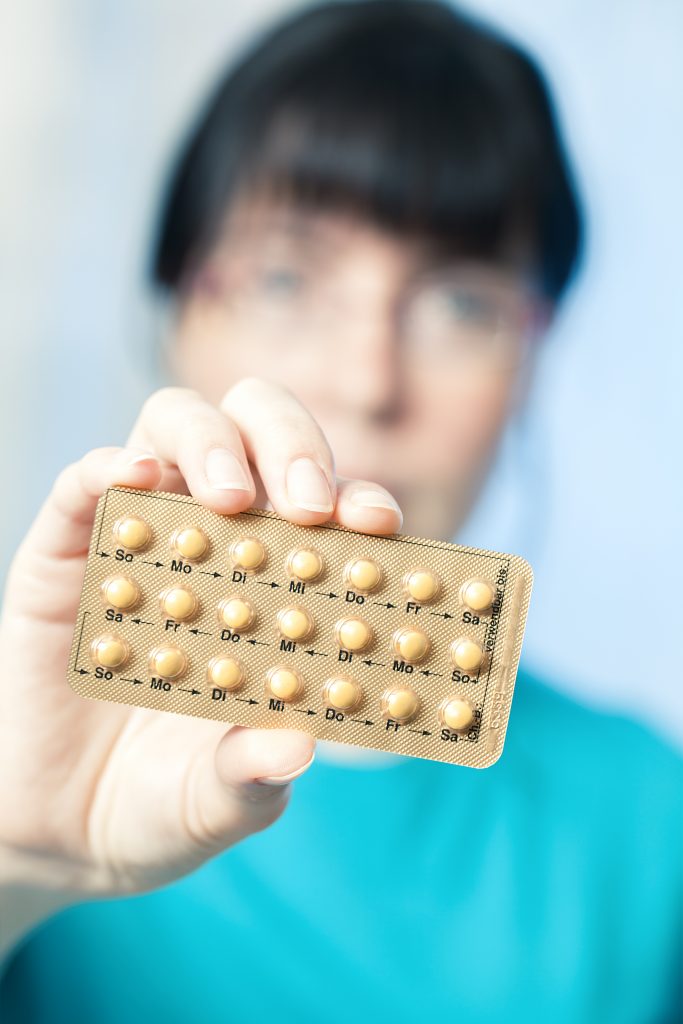
Another way to treat hormonal imbalances that cause hair loss in women is by prescribing birth control. Most of the time this method can be helpful in regulating menstrual cycles as well as addressing the hair loss issue.
Using this method postpartum is a good way to get your hormones back to normal. However, if you are breastfeeding you need to let your doctor know. It may not be okay for a nursing mother to take a hormonal birth control pill. But that is a question for your doctor to answer. There are so many different types of birth control now that it is likely there is something you can take.
Antiandrogen Medications
Androgens can speed up hair loss but only in some women. This is not a typical occurrence. However, if this is something that you are struggling with then you can talk to your doctor about antiandrogen medications to help with the loss. There is one good medication that is sometimes recommended called spironolactone.
In order for you to get this medication, you will need to see a doctor. Anytime you are treating a hormone imbalance is a good idea to consult with a doctor to make sure it is appropriate and to get a prescription.
Can Hair Regrow After Hormonal Loss?
There is a question that is sometimes asked about hormonal hair loss in women. Many women what to know is hair can regrow after this type of loss. While we believe that hair loss should always be reversible that isn’t the case. With most hormonal hair loss it is not easy to regrow the hair.
Regrowing the hair after hormonal loss is not impossible and it has happened but it really depends on the person and the level of hair loss. Because the hormones shrink the hair follicles, regrowing hair might be difficult. But everyone is different.
Just remember to consult a doctor when it comes to hormones or hormone replacement.

